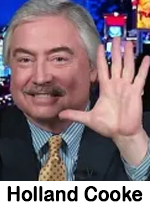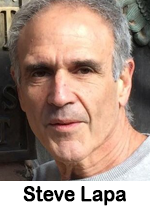Monday Memo: The Local Radio Advantage, Part 2
By Holland Cooke
Consultant
 Radio programming is like any business. Our best prospects are existing customers (getting people already listening to listen more often). And – without spending a dime on outside promotion – we can if the station is known-for-knowing. Set the expectation that we have listeners’ backs and optimize the information we deliver.
Radio programming is like any business. Our best prospects are existing customers (getting people already listening to listen more often). And – without spending a dime on outside promotion – we can if the station is known-for-knowing. Set the expectation that we have listeners’ backs and optimize the information we deliver.
Last week’s column was Part 1 of this three-part series, demonstrating a simple tweak for making source material more relevant and useful. This week, more addition-by-subtraction: “A-words” to avoid; and Magic Words to use every chance you get.
“Anyone,” and “asked,” and “announced” are red flags. These words scream press release.
Instead-of: “Anyone who has seen a car matching that description is asked to contact the police.”
Say: “If you see that car, call the police.”
Instead of: “Anyone who feels discriminated-against because…”
Say: “If you feel discriminated-against because…”
“Anyone” (or “those,” both third-person) is someone else. Second-person Magic Words “you” and “your” talk to me, the listener. And instead of telling me THAT something-was-announced, explain WHAT, and what-it-means-to-me:
Example: “Jefferson County has joined Clearfield, Elk and 18 other Pennsylvania counties in the Law Enforcement Treatment Initiative. The initiative is a law enforcement-led collaborative program which seeks to direct those who suffer from substance abuse disorders into helpful treatment services.”
Re-write: “If you live in Jefferson County and you or someone you know are struggling with substance abuse, you can now ask police to connect you with a treatment program without being arrested or prosecuted…”
Next week here: THE #1 way to keep listeners coming back for more…
Holland Cooke (HollandCooke.com) is a consultant working at the intersection of broadcasting and the Internet. He is the author of “The Local Radio Advantage: Your 4-Week Tune-In Tune-Up,” and “Close Like Crazy: Local Direct Leads, Pitches & Specs That Earned the Benjamins” and “Confidential: Negotiation Checklist for Weekend Talk Radio.” Follow HC on Twitter @HollandCooke and connect on LinkedIn.




 Bulletin: “Linear TV” is no longer the winner.
Bulletin: “Linear TV” is no longer the winner.